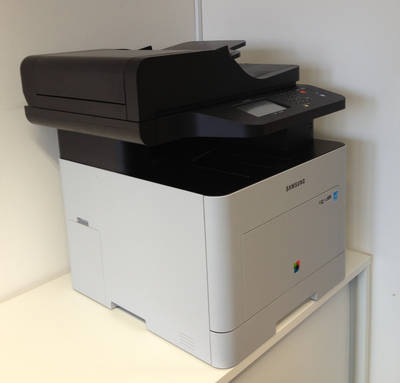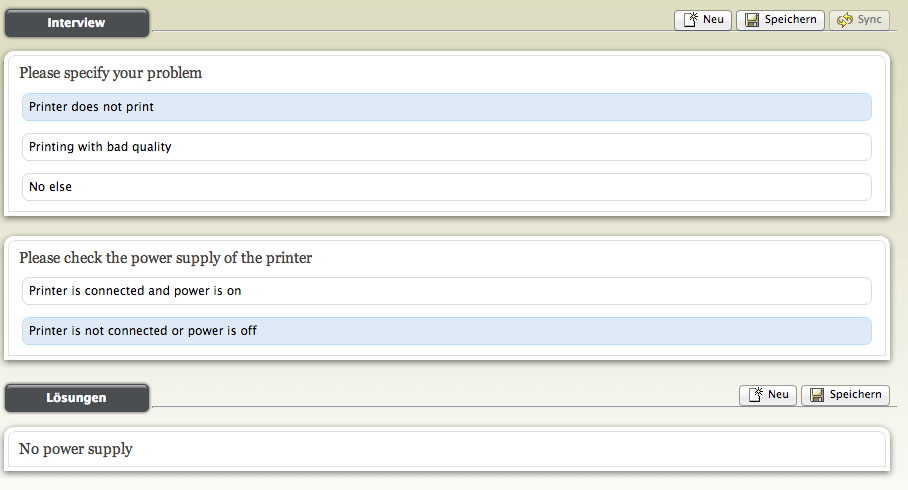 |
Printer Problems Diagnosis#
This small demo example shows the basic functionality of KnowWE and its corresponding knowledge representations for the formalization of diagnostic knowledge.
We build a knowledge base for deriving the reasons for the faults of an imaginary printer.
Set-Up#
Annotate Wiki Articles#
Every article containing knowledge of the printer example needs to be tagged in a special manner. We choose the tag name Printer_Demo and we insert the annotation
%%Package Printer_Demo
into every particular article containing knowledge.
Define the Knowledge Base Center#
In general, the knowledge base can be distributed across many wiki articles (each of them tagged with Printer_Demo). Therefore, we need to define a place where all knowledge elements are collected into a single knowledge base. For this, we use the KnowledgeBase markup in the following manner:
%%KnowledgeBase Printer Fault Diagnosis Demo @author: joba @version: 1.0 @uses: Printer_Demo %
By inserting the markup the following center is provided:
Terminology#
In the first step we need to define the terminology of the planned system, i.e., the questions (inputs into the system) and the solutions (outputs of the system). The definition of terms for questions and solutions is described in the article Tutorial Printer Problem - Terminology.
Derivation Knowledge using DiaFlux Models#
After the definition of the terminology we need to define knowledge elements that implement the derivation and dialog behavior of the knowledge base. For that, d3web/KnowWE provides a number of alternatives ranging from scoring rules, decision trees to set-covering models. In this tutorial we show how to implement the derivation knowledge as a DiaFlux flowchart model: DiaFlux implementation
Manually Testing the Knowledge Base #
Now we can test the knowledge base by running a dialog.
Quick Interview#
A simple test dialog interface can be created by inserting the markup
%%QuickInterview % %%ShowSolutions %
into the same article, where KnowledgeBase is defined. The markup will provide an interface for the user:
Interactive Single-Question Dialog (free-to-use)#
Additionally, an interactive single-question dialog is available (provided by denkbares GmbH). Here, only the currently active question is shown that should be answered by the user. Derived solutions are printed at the end of the dialog session.
The dialog is started by using the tools menu of the KnowledgeBase markup as shown in the image below.
 |
An example dialog of the interactive interview is depicted in the following screenshot.
 |
Automated Testing#
The knowledge base can be tested continuously by defining test cases and continuous integration test. See the article Tutorial Printer Testcases for more information.

